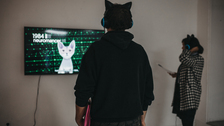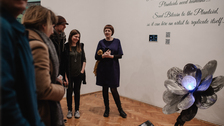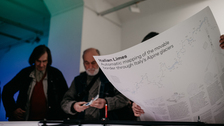State Machines – Art, Work, and Identity ina n Age of Planetary-Scale Computation
Priorities
- Transnational mobility
- Capacity building: Digital shift, New business model
Project description
Today, we live in a world where every time we turn on our smartphones, we are inextricably tied by data, laws and flowing bytes to different countries, in which every personal expression is framed and mediated by digital platforms, and where new kinds of currencies, financial exchange and even labour bypass corporations and governments. At the same time, the same technologies increase governmental powers of surveillance, allow corporations to extract ever more complex working arrangements and do little to slow the construction of actual walls along actual borders. What tools do we need to understand this world, and how can art assist in envisioning and enacting other possible futures?
State Machines investigates the new relationships between states, citizens and the stateless made possible by emerging technologies. Focussing on how such technologies impact identity and citizenship, digital labour and finance, the project insists on the need for new forms of expression and new artistic practices to address the most urgent questions of our time, and seeks to educate and empower the digital subjects of today to become active and engaged, digital citizens of tomorrow.
Project objective
State Machines investigates relationships between states, citizens and the stateless made possible by emerging technologies and their impact on concepts of identity, citizenship, digital labour and finance. Through the production of new art exhibitions, new commissions and publications, the aim is to build new kinds of literacy for digital understanding and participation of citizens in the digital age.
Gained experience
Cooperation with diffrent organisations, artists and partners through the State Machines project allowed us to explore new production and distribution formats, which otherwise we probaly would not have developed on our own.


